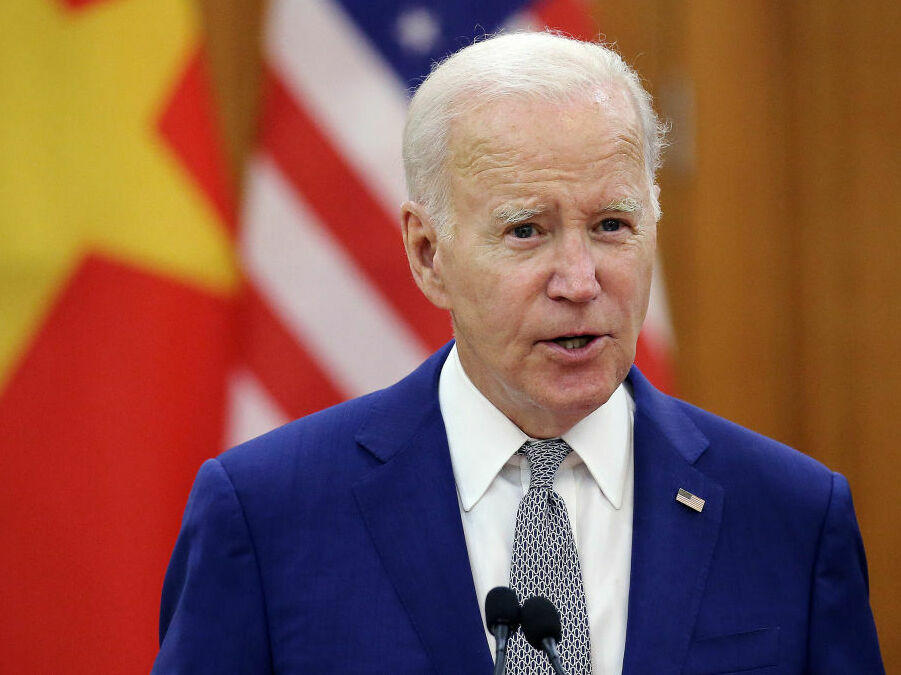Section Branding
Header Content
Biden denies improved ties with China's adversaries is meant to contain Beijing
Primary Content
Updated September 10, 2023 at 11:07 AM ET
President Biden said Sunday his visits to Vietnam and India, as well as strengthening partnerships with Japan, Australia and other countries, was "not about containing China. It's about having a stable" Asia-Pacific region.
"I don't want to contain China. I just want to make sure we have a relationship with China that is on the up and up squared away everybody knows what it's all about," Biden said at a news conference following a bilateral meeting with the head of Vietnam's Communist Party. "And one of the ways you do that is you make sure that we are talking about the same thing.
"And I think that what we've done, I've tried to talk with my staff about this for the last six months, is an opportunity to strengthen alliances around the world."
Biden, who hasn't met with Chinese President Xi Jinping in 10 months, denied the lack of top-level meetings was destabilizing Sino-U.S. relations. He said his team and staff still meet with their Chinese counterparts, but added Xi "had his hands full right now."
"He has overwhelming unemployment. One of the major economic tenets of his plan is not working through he's trying to figure out." But, he said, "I hope I get to see Mr. Xi sooner rather than later."
The two men last met in November 2022 on the sidelines of the G20 summit in Bali.
"I want to see China succeed economically, but I want to see them succeed by the rules," Biden said.
Earlier, following a meeting with Nguyen Phu Trong, the general secretary of Vietnam's Communist Party, Biden said the U.S. had "strengthened our ties with another critical Indo-Pacific partner."
Vietnam elevated relations with the U.S. to the level of a comprehensive strategic partner, the highest level of international partnership. Vietnam accords that status, long coveted by Washington, to four other nations: China, India, Russia and South Korea.
The move is significant as the U.S. tries to counter China's diplomatic and military heft in the region; Washington views Vietnam as a pivotal nation in its regional strategy; Vietnam has pushed back against China's policy in the region, as Beijing claims waters that Hanoi says belongs to it.
In Hanoi Sunday, Biden met with Trong and called the two countries "critical partners at what I would argue is a very critical time." Speaking through an interpreter, Trong said the two countries' partnership had grown by "leaps and bounds." Vietnam's human-rights record remained a concern, however. Biden said he brought up the issue, but Trong emphasized the importance of "non-interference in domestic affairs."
Biden arrived in Vietnam after visiting New Delhi, India, for the Group of 20 summit where he announced plans for a new rail and shipping corridor connecting India, the Middle and Europe – but notably not China.
It was one of several ways that Biden is seeking to counter the inroads China has made around the world through its Belt and Road Initiative and other development financing. At the G20, the United States and Europe also announced new investments in a rail line that will connect Angola with the Democratic Republic of Congo and Zambia.
Copyright 2023 NPR. To see more, visit https://www.npr.org.

